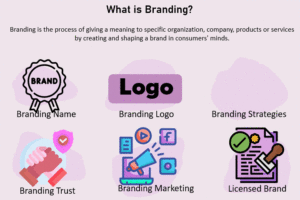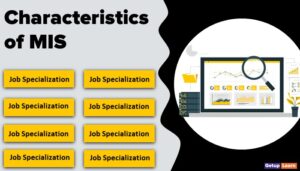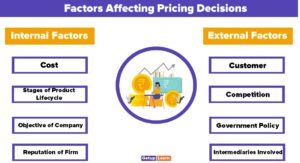Table of Contents
- 1 What is Marketing?
- 2 Definitions of Marketing
- 3 Nature of Marketing
- 4 Scope of Marketing
- 5 Concept of Marketing
- 6 Functions of a Marketing
-
7 Importance of Marketing
- 7.1 Marketing Promotes Product Awareness to the Customers
- 7.2 Marketing Helps Boost Product Sales
- 7.3 Marketing Improves Standard of Living
- 7.4 Marketing Connects the Producers and Consumers
- 7.5 Marketing Provides Employment Opportunities
- 7.6 Marketing Helps to Provide Economic Stability
- 7.7 Marketing Helps to Utilize our Natural Resources
What is Marketing?
Marketing consists of the performance of business activities that direct the flow of goods and services from producer to consumer or user. Marketing occupies a prime position in the organisation of a business unit.
It is one of the important and core activities of all business operations. It consists of those activities which lead to the transfer of ownership of goods and also some aspects of physical distribution.
Thus, Marketing is a functional area of business management which has to do with the broad problem of consumer satisfaction.
Definitions of Marketing
Some important definitions of marketing are as follows:
Marketing is the performance of business activities directed toward, and incident to, the flow of goods and services from producer to consumer or user
AMA (1948)
Marketing is the performance of business activities that direct the flow of goods and services from producer to consumer or user.
AMA (1960)
A societal process by which individuals and groups obtain what they need and want through creating, offering, and freely exchanging products and services of value with others.
Kotler
Marketing is the combination of activities designed to produce profit through ascertaining, creating, stimulating, and satisfying the needs and/or wants of a selected segment of the market.
Eldridge
Nature of Marketing
We have here discussed the nature of marketing:
- Consumers and Competitors Oriented
- Corporate Objectives
- Planning and Implementation of Marketing Objectives
- Analysis and Forecasting
- Planning and Development of Products and Services
- Stimulation of Consumer Demand
- Services to Consumers to yield Customers’ Satisfaction
Consumers and Competitors Oriented
It has consumers and competitors orientation in its business planning and activities.
Corporate Objectives
Corporate objectives are given top preferences and departmental goals act as the means to achieve corporate goals.
Planning and Implementation of Marketing Objectives
It follows the system approach in planning, organizing, controlling and coordinating its entire business as a system to achieve the overall corporate objectives.
Analysis and Forecasting
Collection, analysis and forecasting of consumers’ needs, wants, desires, demands, ability to pay, willingness to pay etc. are made for market survey and research.
Planning and Development of Products and Services
It develops products and provides services to match with the anticipated consumer demand.
Stimulation of Consumer Demand
It stimulates consumers’ demand by logical pricing and influencing promotion techniques.
Services to Consumers to yield Customers’ Satisfaction
It makes all sorts of attempts and render a variety of series to satisfy consumers.
Scope of Marketing
The scope of marketing are as follows:
- Analysis of the Market
- Planning for Marketing Functions
- Designing Marketing Structur
- Marketing Research
- Pricing of the Product
- Evaluation of Marketing Activities
Analysis of the Market
It is done through marketing research. Data and information are collected through market surveys.
Planning for Marketing Functions
On the basis of market analysis, the marketing goals and targets are determined, i.e. quantity to be sold and produced, volume of goods to be made available in the different segments.
Designing Marketing Structur
The marketing structure is designed considering different activities required for effective marketing of goods and services.
Marketing Research
Marketing utilizes marketing research to consider the changes in taste, fashion, habit, liking, disliking, and preferences of the customers, and new types of goods and services to be introduced in the market.
Pricing of the Product
The success of the marketing depends on the right pricing decision at the right moment.
Evaluation of Marketing Activities
various marketing activities are evaluated, for example, determining the efficiency of sales personnel and the effectiveness of the sales techniques.
Concept of Marketing
We have here discussed the concept of marketing:
- Exchange Concept
- Product Concept
- Production Concept
- Sales Concept
- Marketing Concept
- Standard of Living Concept
- Utility Concept
- Revenue Concept
Exchange Concept
Marketing involves the exchange of a product and service in lieu of money between a seller and a buyer, but modern marketing is not merely an exchange operation. Marketing has now gained a much wider connotation.
It covers the search for customers’ wants, formulation of marketing strategies, marketing mix, creative selling and advertising, serving the customers and so on. This exchange oriented marketing approach has been enriched by a range of newer activities of marketing.
Product Concept
This traditional philosophy which was popular in the 1930s made the management firmly believe that if the product has superb features, quality and performance, customer response is bound to be favourable and promotion efforts are not required.
Production Concept
According to this concept, the marketing department of a company is made to sell whatever is produced. The product line is usually narrow. The price is based on production and distribution costs. Technical research enables product improvement and cost-cutting in the production process.
Packaging is expected to protect the product and minimise cost credit is regarded as a necessary evil. The producer is interested only to minimise bad debt losses. Promotion is adopted only to give emphasis on product features, quality and price.
Sales Concept
Buyers’ market for many commodities has brought about sales orientation in marketing. Those holding this viewpoint believe that a company cannot secure enough customer response to its products without high-pressure salesmanship, aggressive advertising and intensive sales promotion.
Sales orientation gives emphasis on increasing sales volume even at the cost of consumer satisfaction and service.
Marketing Concept
When a marketer adopts a market-oriented business philosophy, the guiding principle becomes “it is more effective to make what customer wants to buy than to sell them what a marketer wants to make or sell. “Thus, primary and co-ordination of all company activities rotate around the primary goal of satisfying customer needs.
The marketing concept is defined as a customer-oriented philosophy duly integrated and implemented through the entire organisation in order to serve customers better than competitors and thereby ensure sustained growth and prosperity.
Standard of Living Concept
This concept of marketing was developed by Paul Mazur who gave a sentimental definition of marketing. According to his viewpoint, “Marketing delivers the standard of living to the society.” Though this concept of marketing is customer-oriented up to some extent but not a complete one.
Utility Concept
This concept of marketing is an extension of the classical economic concept. According to this concept, marketing has been defined as the creation of time, place and possession utilities. The definition of R.Buskirk can be put under this head, “Market is an integrated system of action that creates value in goods through the creation of place, time and ownership utilities.”
Revenue Concept
According to this concept, Marketing is that activity that earns profit for the business. A marketing executive is concerned with the charging or remunerative prices which will contribute most to company profits. Thus, profit is the criterion by which the marketing manager should make his decisions.
However, in modern times, profit alone cannot be the corporate philosophy. The focus of most business organisations is on wealth maximisation.
Functions of a Marketing
The functions of a marketing are listed below:
Target Market
Markets consist of customers identified as possessing needs the marketer believes can be addressed by its marketing efforts. A target market is a group of customers at whom the company intends to aim its marketing effort. An organization starts its marketing planning by selecting and analyzing its target market, out of the total market.
Product and Service
Goods and services available in the market place are the means by which we satisfy our needs. Product is a comprehensive term that includes both goods and services. Anything that satisfies needs and wants of the customer qualifies to become the product. Products are a bundle of benefits and services.
Promotion
A means for communicating information about the marketing’s organization products to the market. It is the link between the company and the outside public. Promotion itself is a combination of advertising, personal selling, publicity and public relations.
Distribution
It is the process of getting the right products to the right places, at the right time, in the right size or quantities and in the condition expected by the consumer, yet at the lowest possible cost. Placing the product is the bridging of the gap between the producer and consumer, a gap that can be vast, such as with petroleum that is shipped across oceans.
Pricing
The price is an agreement between seller and buyer concerning what each is to receive. Price is the mechanism or device for translating into quantitative terms the perceived value of the product to the consumer at a point of time. Pricing is equivalent to the total product offerings.
Importance of Marketing
Below we will discuss the importance of marketing:
- Marketing Promotes Product Awareness to the Customers
- Marketing Helps Boost Product Sales
- Marketing Improves Standard of Living
- Marketing Connects the Producers and Consumers
- Marketing Provides Employment Opportunities
- Marketing Helps to Provide Economic Stability
- Marketing Helps to Utilize our Natural Resources
Marketing Promotes Product Awareness to the Customers
Various types of marketing approaches can be utilized by an organization. All forms of marketing promote product awareness to the market at large. Offline and online marketing makes it possible for people to be educated about the various products and services that they can take advantage of. A company must invest in marketing so as not to miss the opportunity of being discovered.
Marketing Helps Boost Product Sales
Apart from public awareness about a company’s products and services, marketing helps boost sales and revenue growth. Whatever your business is selling, the more people hear and see more of your advertisements, the more they will be interested to buy.
Marketing Improves Standard of Living
Marketing promotes large scale production and sales which bring down the cost of production and increases the amount of profit. Lower price results in large consumption by large number of consumers which improves the standard of living at large.
Marketing Connects the Producers and Consumers
The producers produce goods and services for the purpose of selling. Therefore, the producers should be in touch with the consumers who require such goods and services. In the absence of a marketing process, it would have been extremely difficult for producers to find out what customers want.
Marketing Provides Employment Opportunities
Marketing results in large scale production which in turn creates good number of employment in the production process. Thousands of people are employed to manage the retail and wholesale establishments.
Marketing Helps to Provide Economic Stability
A good marketing system enables maintaining the price level stable by matching the demand and supply at various places and different period. This is possible by creating time and place utility.
Marketing Helps to Utilize our Natural Resources
It is marketing which collects the needs, wants, desires, preferences etc. of domestic consumers and international consumers and analyzes the information to produce goods and services for better satisfaction of consumers. In the process of producing various goods, they are utilizing the national resources up to the optimum level.











